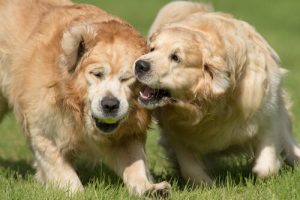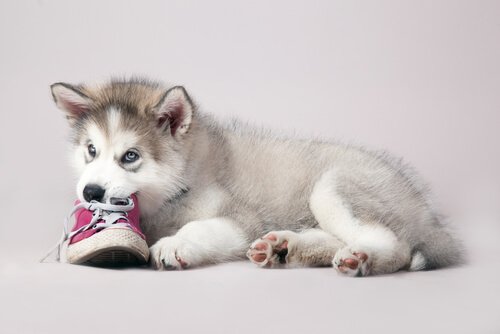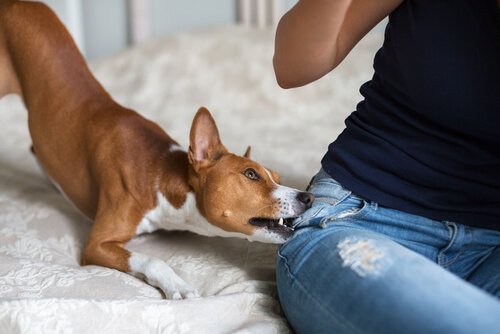How to Keep your Dog from Biting

Our four-legged friends not only stand out for their loyalty to man or for their (sometimes excessive) barking. Regrettably, sometimes they are in the news because they have bitten a person, causing serious injuries and even death. But can you prevent your dog from biting?
Why dogs bite
If a dog bites, or tries to do so, it is because he is scared and it is his way of defending himself, regardless of his size or breed. Although, clearly, the more powerful the dog’s jaw is, the more damage it can cause.
And although sometimes claims are disseminated that animals classified as “potentially dangerous” are more likely to attack, the truth is that the fault here is usually not with the dog but rather with the owner, who “trains” him in this kind of behavior.
The environment in which a dog grows up, the treatment he receives, and the way that he is socialized and trained greatly influence the animal’s behavior and the likelihood of him having a tendency to bite.
Good training, for both dogs and their owners, is the fundamental tool for keeping a dog from biting us.
Facts about dogs and biting

Dog bites are not a minor issue. That is why it is important to prevent them through good training for both the dog and the owner.
According to data from the World Health Organization (WHO):
- The death toll from dog bites is higher in low and middle income countries. The reason is inadequate or completely non-existent medical treatment.
- Children are the main victims and are at serious risk of suffering head or neck injuries due to their height.
- 50% of the injuries suffered by travelers due to animals are caused by dogs biting them.
How can you keep your dog from biting
So what can we do to keep our dog from biting? Well, many things. For example, when he is a puppy, you must teach him not to bite when he is playing.
It is normal for young dogs to use their mouths to explore their surroundings and nibble everything in their path.
But you have to make the little ones understand that this action can cause harm. How do you to do this? Observe what another puppy, a playmate, does when he is bitten: he complains about the pain he feels.
So, when your dog is gently nibbling and gives you a sharp bite when he suddenly becomes excited, let him know that it hurts. Shout “Oww!!!” and stop the game. It is the best way for our dogs to understand that this behavior hurts us so that they can begin to have control over their bite.
Adequate training and socialization: keys to keeping dogs from being aggressive
But the fundamental points for keeping our dog from biting or having other aggressive behaviors are good socialization and treatment.
A dog that grows up in a “friendly” environment and in contact with other animals and people will surely become a fearless and emotionally balanced adult. Under these conditions, it is unlikely they will react by trying to bite.
On the contrary, the greatest possibility of aggression occurs in animals that:
- Receive corporal punishment
- Remain tied up, isolated or outside the house all the time
- Are humanized to the extreme
What you have to know to keep a dog from biting you

However in addition to educating and socializing our dogs, we humans must also learn the correct way to deal with them. In this sense, it is fundamental to:
- Know dog body language in order to identify the signs that may indicate a possible attack.
- Know how to deal with unknown animals that can probably show aggression.
- Explain to children how they should treat their four-legged friends. Keep in mind that you should not leave them alone with dogs, especially if they are very small.
In this way, in trying to understand our dogs, surely we will avoid many unpleasant situations that could end up in a dog bite.
This text is provided for informational purposes only and does not replace consultation with a professional. If in doubt, consult your specialist.